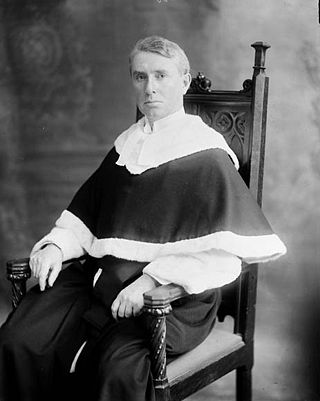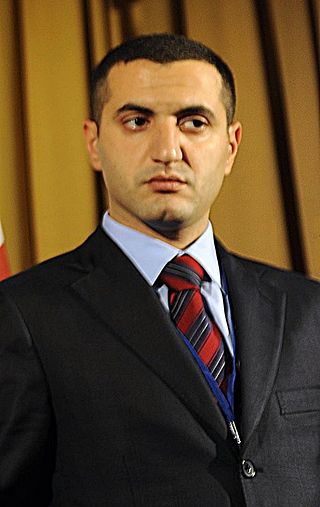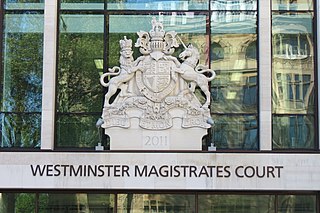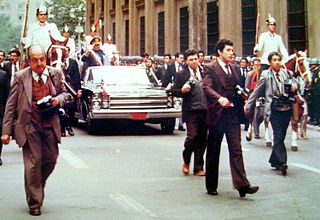
A summary offence or petty offence is a violation in some common law jurisdictions that can be proceeded against summarily,without the right to a jury trial and/or indictment.

A justice of the peace (JP) is a judicial officer of a lower court,elected or appointed by means of a commission to keep the peace. In past centuries the term commissioner of the peace was often used with the same meaning. Depending on the jurisdiction,such justices dispense summary justice or merely deal with local administrative applications in common law jurisdictions. Justices of the peace are appointed or elected from the citizens of the jurisdiction in which they serve,and are usually not required to have any formal legal education in order to qualify for the office. Some jurisdictions have varying forms of training for JPs.

The term magistrate is used in a variety of systems of governments and laws to refer to a civilian officer who administers the law. In ancient Rome,a magistratus was one of the highest ranking government officers,and possessed both judicial and executive powers. In other parts of the world,such as China,magistrate is a word applied to a person responsible for administration over a particular geographic area. Today,in some jurisdictions,a magistrate is a judicial officer who hears cases in a lower court,and typically deals with more minor or preliminary matters. In other jurisdictions,magistrates are typically trained volunteers appointed to deal with criminal and civil matters in their local areas.

The Crown Prosecution Service (CPS) is the principal public agency for conducting criminal prosecutions in England and Wales. It is headed by the Director of Public Prosecutions.

In England and Wales,a magistrates' court is a lower court which hears matters relating to summary offences and some triable either-way matters. Some civil law issues are also decided here,notably family proceedings. In 2010,there were 320 magistrates' courts in England and Wales;by 2020,a decade later,164 of those had closed. The jurisdiction of magistrates' courts and rules governing them are set out in the Magistrates' Courts Act 1980.
The European Arrest Warrant (EAW) is an arrest warrant valid throughout all member states of the European Union (EU). Once issued,it requires another member state to arrest and transfer a criminal suspect or sentenced person to the issuing state so that the person can be put on trial or complete a detention period. It is a simplified cross-border judicial surrender method,and has replaced the lengthy extradition procedures that used to exist between member states. The EAW has been in force since 1 January 2004 in all Member States.
Senior District Judge Timothy Henry Workman is a retired British judge,a long-term stipendiary magistrate who served as Senior District Judge for England and Wales.
Stipendiary magistrates were magistrates that were paid for their work. They existed in the judiciaries of the United Kingdom and those of several former British territories,where they sat in the lowest-level criminal courts.

Davit Kezerashvili is a Jewish-Georgian investor,entrepreneur and former Minister of Defense of Georgia under Mikheil Saakashvili's presidency from November 2006 to December 2008. Kezerashvili currently resides in the United Kingdom and is sentenced to imprisonment in Georgia for corruption charges that he has argued are politically motivated.
The Prevention of Corruption Act,1988 is an Act of the Parliament of India enacted to combat corruption in government agencies and public sector businesses in India.

Westminster Magistrates' Court is a magistrates' court at 181 Marylebone Road,London. The Chief Magistrate of England and Wales,who is the Senior District Judge of England and Wales,sits at the court,and all extradition and terrorism-related cases pass through it. The court opened on 22 September 2011 as a replacement for the City of Westminster Magistrates' Court.
Public Prosecution Service of Northern Ireland v. Liam Adams was a criminal case relating to allegations of child abuse made in 2009 against Liam Adams,brother of Irish politician Gerry Adams. Liam Adams was found guilty in October 2013 of 10 offences,and was sentenced in November 2013 to 16 years in prison.
The Code of Criminal Procedure,commonly called Criminal Procedure Code (CrPC),was the main legislation on procedure for administration of substantive criminal law in India. It was enacted in 1973 and came into force on 1 April 1974. It provides the machinery for the investigation of crime,apprehension of suspected criminals,collection of evidence,determination of guilt or innocence of the accused person and the determination of punishment of the guilty. It also deals with public nuisance,prevention of offences and maintenance of wife,child and parents.

Anni Ninna Dewani was a Swedish woman of Indian origin who was murdered while on her honeymoon in South Africa after the taxi in which she and her husband Shrien Dewani were traveling was hijacked.

Assange v Swedish Prosecution Authority were the set of legal proceedings in the United Kingdom concerning the requested extradition of Julian Assange to Sweden for a "preliminary investigation" into accusations of sexual offences allegedly made in August 2010. Assange left Sweden for the UK in 27 September 2010 and a warrant for his arrest was issued in his absence the same day. He was suspected of rape of a lesser degree,unlawful coercion and multiple cases of sexual molestation. In June 2012,Assange breached bail and sought refuge at Ecuador's Embassy in London and was granted asylum.

In England and Wales,magistrates are trained volunteers,selected from the local community,who deal with a wide range of criminal and civil proceedings. They are also known as Justices of the Peace. In the adult criminal court,magistrates have equal sentencing powers to district judges and deliver verdicts on both “summary”and “either way”offences that carry up to twelve months in prison,or an unlimited fine. Magistrates also sit in the family court where they help resolve disputes that involve children,and in the youth court,which deals with criminal matters involving young people aged 10–17. Established in the 14th century,the magistracy is a key part of the judiciary of England and Wales,and it is a role underpinned by the principles of 'local justice' and 'justice by one's peers'.

R v Bow St Metropolitan Stipendiary Magistrate [2000] 1 AC 61,119 and 147 is a set of three UK constitutional law judgments by the House of Lords that examined whether former Chilean dictator Augusto Pinochet was entitled to claim state immunity from torture allegations made by a Spanish court and therefore avoid extradition to Spain. They have proven to be of landmark significance in international criminal law and human rights law.
Domenico Rancadore is accused by the Italian government of being a past boss in the Sicilian Mafia,also known as Cosa Nostra. Italian police listed him as one of Italy's "most wanted criminals".

In 2012,while on bail,Julian Assange was granted political asylum in the Ecuadorian Embassy in London,where he sought to avoid extradition to Sweden,and what his supporters said was the possibility of subsequent extradition to the US. On 11 April 2019,Ecuador revoked his asylum,he was arrested for failing to appear in court,and carried out of the embassy by members of the London Metropolitan Police. Following his arrest,he was charged and convicted,on 1 May 2019,of violating the Bail Act,and sentenced to fifty weeks in prison. While in prison the US revealed a previously sealed 2018 US indictment in which Assange was charged with conspiracy to commit computer intrusion related to his involvement with Chelsea Manning and WikiLeaks.
The Chief Metropolitan Stipendiary Magistrate,known as Chief Metropolitan Police Magistrate until 1949,and also known as the Chief Metropolitan Magistrate and Chief Magistrate of the Police Courts of the Metropolis,was a senior British magistrate based in London. The most senior metropolitan stipendiary magistrate,the Chief Metropolitan Magistrate had responsibilities for the administration of the London magistrates' courts as well as the appointment of metropolitan stipendiary magistrates. He also had special responsibilities in relation to extradition proceedings. The Chief Metropolitan Magistrate was based at Bow Street Magistrates' Court.










